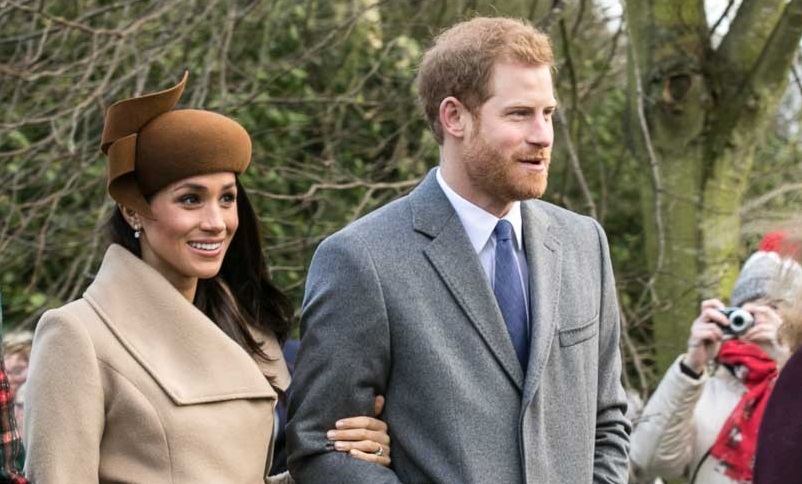Celebrity publicist and brand expert Matthew Hayes explores the bombshell interview and what it reveals about the royal family's branding catastrophe.
After the nation watched Prince Harry’s interview on The Late Late Show with James Corden a little over a week ago, viewers were met with humour and warmth.
But just last night, whilst the Duke and Duchess of Sussex were interviewed by Oprah Winfrey, we were all met with a slightly different tone. One that was somewhat intense, dramatised and melancholy.
Celebrity publicist, brand expert and managing director of Midlands-based brand agency Champions (UK) plc, Matthew Hayes, explains why he thinks the interview was a matter of crisis escalation rather than crisis management.
“What a difference a week makes,” Matthew begins. “Just over a week ago, we were given an interview that was upbeat, self-deprecating and forward thinking.
“But last night was quite the opposite. Whilst Prince Harry had successfully managed to reposition his brand during his interview with James Corden in a positive light, Meghan has seemingly done the reverse.”
Over the last 24 hours, the entire world watched on as Meghan sat down to tell her side of the story with TV host and good friend, Oprah Winfrey, before being joined by her husband.
Matthew also explains that the interview between Meghan and Oprah was a traditional celebrity publicist approach. Meghan positioned this from the role she knows best – the role of a celebrity and not that of a royal.
“Just over a week ago, we were given an interview that was upbeat, self-deprecating and forward thinking. But last night was quite the opposite."
“The set-up and atmosphere of the interview felt like that of a typical talk show with standard celebrities. And this was, or should have been, much more than that. From dramatic gasps, slow motion shots, cliff-hangers and added music for suspense, I’m not entirely sure it was appropriate for the Royal Family,” he says.
Whilst Matthew believes that Harry demonstrated clear crisis management in the sense that there wasn’t one, showing that he is now moving on and going forward, he feels like Meghan’s interview didn’t quite have the same effect.
“From a branding and publicist point of view, Meghan’s interview was not a case of crisis management, but more so adding to crisis escalation.
“She kicked up a lot of dust but settled none. It felt flippant and lightweight for an incredibly heavyweight topic,” Matt explains.
For many, it felt that Meghan was the headline act, whilst Harry was supporting, and the same rang true for Matthew.
“The interview showcased Meghan’s feelings towards the monarchy, and that was that she is now against it and what it stands for.It didn’t feel like it was a 'couples’ interview, and whilst I believe it was supposed to portray unity and alignment between the Duke and Duchess of Sussex, this did not correlate.”
“From a branding and publicist point of view, Meghan’s interview was not a case of crisis management, but more so adding to crisis escalation."
The question on most people’s lips is, ‘what exactly was Meghan trying to achieve?’ and Matthew believes that the interview didn’t do her any favours.
“Whilst Meghan wanted to tell her side of the story and reposition her brand, the whole thing went back and forth between being an independent and empowered woman, vs a call for sympathy.
“I’m sure many would agree that the interview, in parts, appeared negative, bitter and just didn’t sit right.”
As the interview aired in the UK on 8 March, which also happened to be International Women’s Day, this left many people wondering if this was pure coincidence, or a deliberate act.
“Prior to her relationship with Harry, Meghan was recognised not just as an actress, but as an advocate for feminism, women’s rights and diversity.
“And whilst she successfully managed to discuss these topics throughout the interview, as well as the hugely important topic of mental health, Meghan didn’t provide viewers with any advice or education on when, where, or how to seek help should they need it, which was disappointing.
“All of the topics discussed are very apt and appropriate for today’s world and are all things that need to be discussed. However, why wasn’t this interview done at the time, at the very height of the problem?
“It feels that to host it now, after over a year, changes the narrative from a need to reach out for help, to one of reaching out for sympathy.”
[ymal]
Prince Harry’s interview on The Late Late Show was a huge hit, and for good reason, too. Matthew isn’t alone in wondering which interview really came first.
“I believe that the Oprah interview originally came first, however, Harry took part in The Late Late Show to inject warmth and humour to make up for the negativity and sadness that was to come.”
Was it just convenience that Harry chose close friend and fellow Brit James Corden, whilst Meghan chose Oprah, fellow American and good friend? Matthew thinks not.
“Both Harry and Meghan aligned with brands, celebrities and TV hosts that reflect and represent themselves. But in doing so, they didn’t appear to align with one another at all. They both successfully repositioned and re-established their own brands, but more so individually and as individuals, as opposed to a couple.
“We now understand their stories and brands separately, but the repositioning of the ‘Sussex’ brand as a whole – as a marriage, as parents and as former royals, was a complete disaster.”











